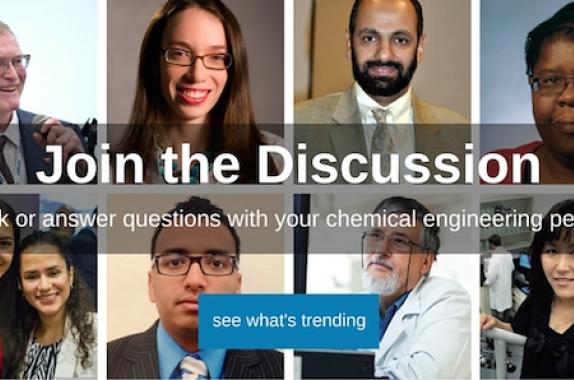
It’s the final year of your chemical engineering undergraduate education, and you finally sit down, open your laptop, and start combing through an abundance of job portals and company websites in search of your first job. You find a handful that interest you and decide to apply to them, but when you take a closer look at the requirements of the entry-level positions, a similar phrase sticks out on all of them: “3+ years of experience required.” Surely, your engineering lectures and lab courses can make up for the experience required, but to what extent? When it comes to fields in the pharmaceutical industry, for example, you may pass the preliminary round of interviews, but when asked if you have the technical experience required for their specific needs, you hit a dead end.
This seemingly innocuous line highlights a challenge that creates a Catch-22 situation for new graduates. “Everybody wants to hire somebody with three years’ experience, and nobody wants to give them three years’ experience,” according to Peter Cappelli, Director of the Center for Human Resources at the Wharton School.
The employer
From an employer’s standpoint, mandating three or more years of experience for entry-level positions makes sense. It is a risk-mitigation strategy ensuring that new hires can contribute from day one, minimizing disruption to workflows and controlling training expenditures. However, this approach presents challenges and unintended consequences for both the employer and the job seeker. By insisting on prior experience, companies limit their candidate pool to those who have previously worked in industry. As a result, companies may inadvertently overlook talented individuals from diverse backgrounds who could infuse their organizations with innovative ideas and novel perspectives.
The prospective employee
As far as actual entry-level engineers are concerned, that statement in job requirements isn’t going anywhere. So, what can new graduates do to demonstrate their value and overcome the “experience barrier”? One strategy is to take part in research labs and gain more technical experience in a specific area that you are interested in. This can be done through cold-emailing professors or joining structured research programs offered by your university. Such experiences not only provide practical exposure but also foster critical thinking, problem-solving, and communication skills, all highly transferable to an industrial setting.
In addition to research labs, another invaluable avenue for students to gain relevant experience is through internships. These opportunities allow undergraduates to apply their classroom learning in an industrial setting, providing a unique glimpse into the world of work and fostering a smoother transition from academia to industry post-graduation. Internships can take various forms — summer internships during vacation periods, part-time internships alongside studies, or even co-op programs that integrate academic coursework with practical experience. This way, students gain insights into specific industries, develop industry-relevant skills, and build a professional network that can prove invaluable when job searching later on. Furthermore, employers often use internships as a pipeline for full-time hires, recognizing the value of onboarding individuals who have already proven their mettle within the organization.
Is there a potential middle ground in sight?
To create a more inclusive and effective hiring process, companies could consider reevaluating their entry-level requirements. Instead of mandating a fixed number of years of experience, they could focus on identifying essential skills, knowledge, and qualities for each role. This approach would open up opportunities for new graduates with diverse backgrounds who may not have extensive industry experience but possess valuable transferable skills. For instance, an employer seeking someone proficient in data analysis might find that a recent graduate with a strong statistics background and relevant project work could be an excellent fit, despite not having three years of industry experience.
To mitigate the risk of hiring inexperienced graduates, companies can implement phased integration plans. New hires could start in a rotational program or a trainee position with a structured onboarding process. This would allow them to learn the ropes gradually while providing employers an opportunity to assess their potential. Investing in training and development programs sends a clear signal that the company values long-term growth and is committed to helping new employees succeed. By providing adequate resources and support, employers can help new engineers bridge the experience gap and contribute effectively to their teams.
While the “3+ years of experience required” conundrum presents challenges for both employers and new graduates, there are viable solutions that can benefit all parties involved. By reevaluating entry-level requirements, assessing transferable skills, and implementing phased integration plans, companies can unlock a broader talent pool, foster a more inclusive work environment, and ultimately build a stronger, more innovative workforce. Meanwhile, recent graduates should actively seek out research labs, internships, and other opportunities to gain relevant experience and demonstrate their value beyond their degree. By working collaboratively toward these goals, companies and universities can create a robust pipeline that benefits the industry as a whole.
This article originally appeared in the Emerging Voices column in the September 2025 issue of CEP. Members have access online to complete issues, including a vast, searchable archive of back-issues found at www.aiche.org/cep.







